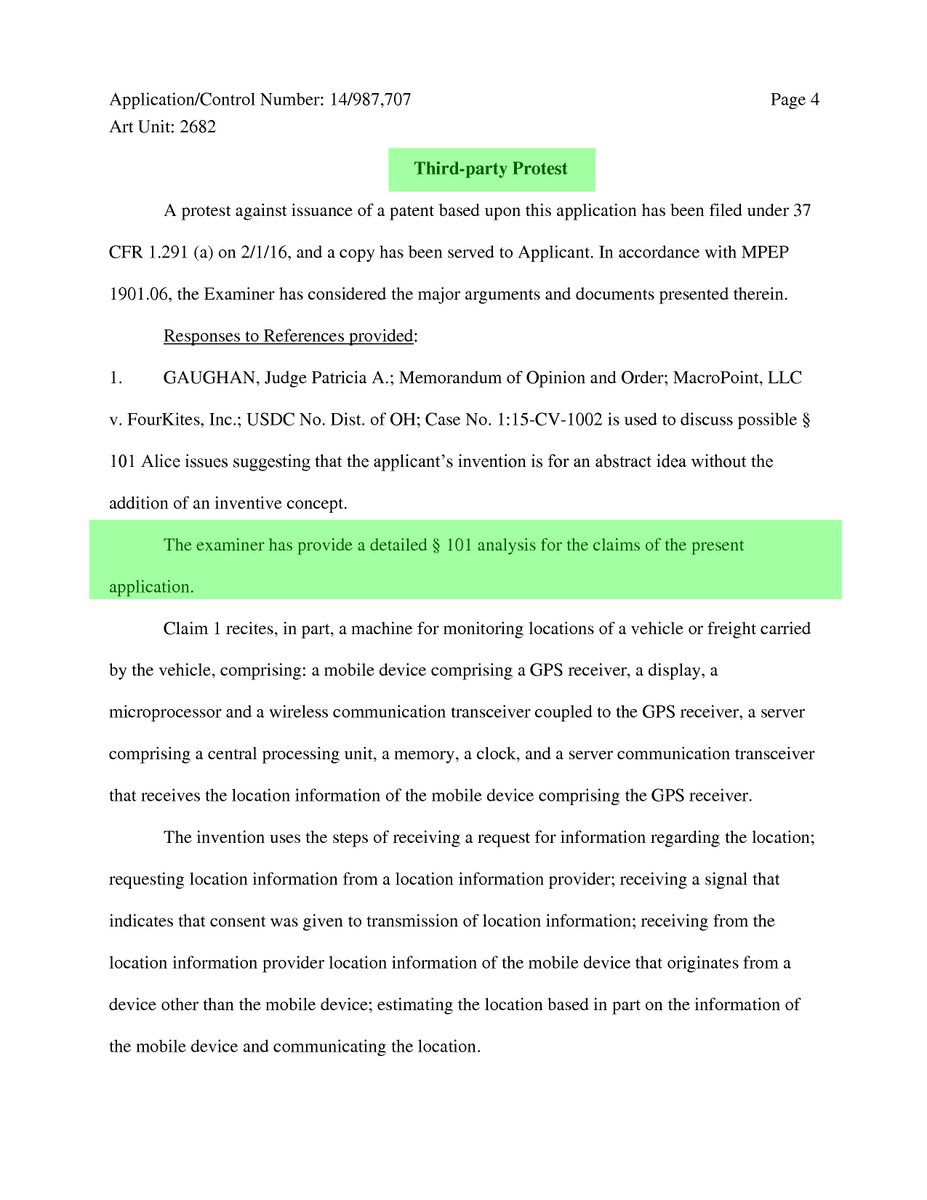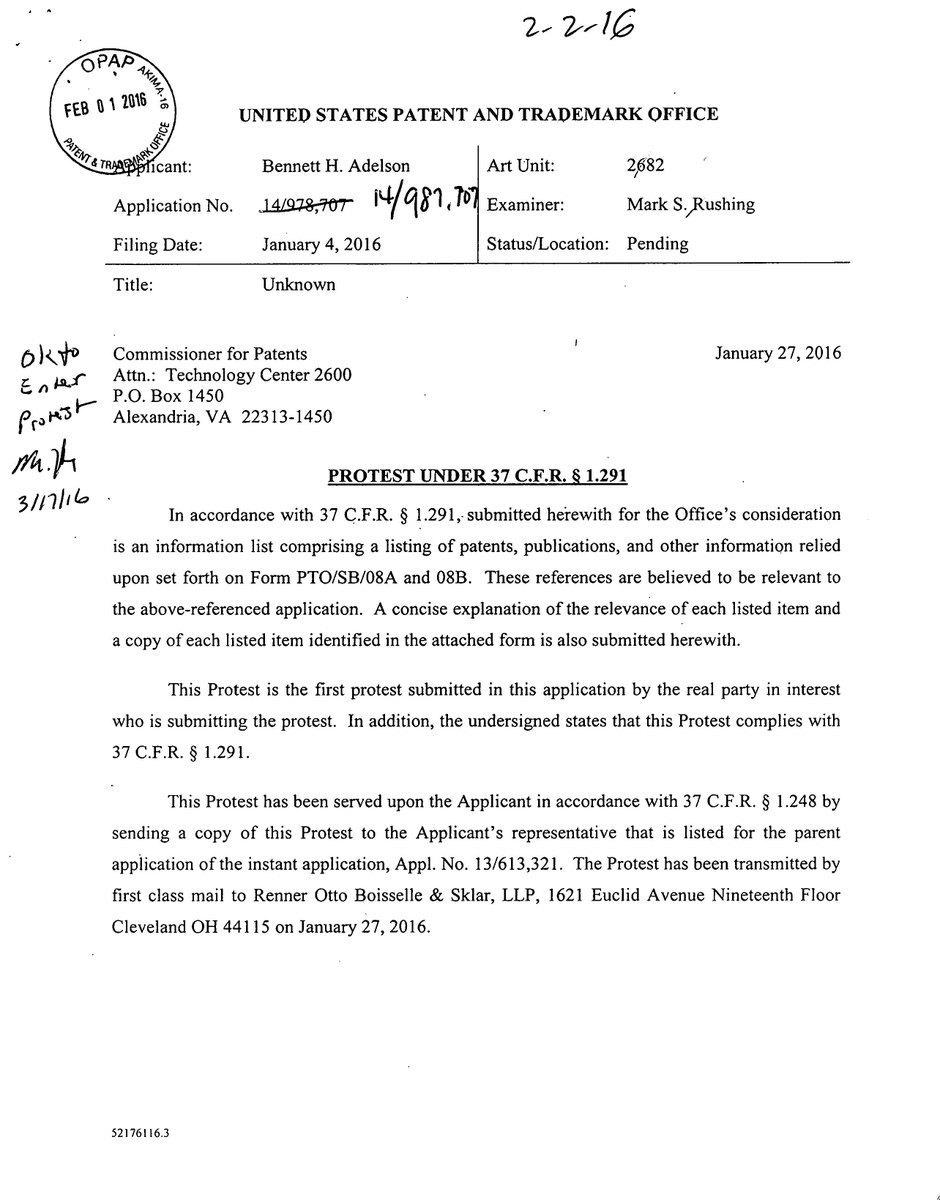


THE images above were extracted from a couple of tweets [1, 2] posted a few days ago to speak of an "Interesting [Section] 101 "protest" lodged v #patent in pending case: http://www.prnewswire.com/news-releases/macropoints-latest-patent-related-to-five-patents-already-invalidated-by-fourkites-in-federal-court-300321922.html … check PAIR -Examiner allowed! Here is part of PTO protest document that was unsuccessful in preventing Macropoint patent from issuing..."
"A coordinated retreat of computing to the dark ages of protectionism and requests for permission to code (or buying "computer time" from mainframe giants) have no room in a society that strives to innovate and develop."Irrespective of the outcome, this glimpse from the inside is helpful and quite informative. We are generally supportive of the USPTO's apparent attempt to improve patent quality*, particularly by denying abstract patents on software -- like those widely used by patent trolls who prey on small companies. We wouldn't quite know (one can only estimate) how many small firms settle in secret (under NDAs) with patent trolls. No public cases and no word of mouth exist, leaving us dependent on rumours and rare blog posts, unless it's a large company that takes the dispute/s into a courtroom.
If the so-called 'Empire of Corporations' insists that software should be patentable and their patent lawyers say the same (because they're paid for it) we should simply ignore them. A coordinated retreat of computing to the dark ages of protectionism and requests for permission to code (or buying "computer time" from mainframe giants) have no room in a society that strives to innovate and develop. ⬆
_____
* When the Office allowed in principle and also actually granted software patents on any conceivable thing expensive litigation (better to settle) became so common and protests against the Office became loud, even inside Congress and GAO.